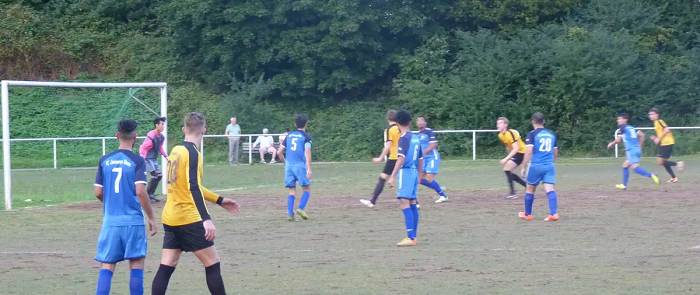Hertha Bonn has been awarded the German Football Association’s (DFB) Integration and Tolerance Award for its efforts in supporting refugee children and helping them integrate into German society.
According to DFB President Bernd Neuendorf, 134 clubs applied for the award, but Hertha Bonn stood out due to the remarkable impact of its “Football Connects” project.
The DFB praised the initiative as “an inspiring example of altruism,” highlighting that the project isn’t aimed at recruiting future club members, as most children move on from the refugee facility in Bonn within days or weeks.
The German soccer club Hertha Bonn has launched an initiative called “Football Connects” to help refugee children integrate and feel more at home. As part of the program, the team’s coach and several players meet with the children in a gym in Bonn, engaging them in practice sessions that make them feel like true soccer players.
The coach uses familiar signals from soccer training to communicate with the children, gathering them in a circle and calling each child by name to begin the session.
These activities have created a cheerful environment that helps the children connect with those around them.
Coach Salim Mahdawi explained, “The children have become accustomed to our routines, like group greetings and farewells.” He noted that these rituals foster social bonding and strengthen a sense of cohesion among the participants.
The children arrive from a nearby refugee reception center to participate in regular training sessions at the club. “This kind of training is essential for the children,” explained Ente Nihili, the volunteer coordinator between the refugee center and the club.
“Many of them have endured difficult situations while fleeing, which has sometimes made their behavior a bit rough.
Here, they learn to be considerate of others again and can experience positive, friendly social interactions.”
Hertha Bonn launched the project two years ago, with Mahdawi developing guidelines to bridge the language barrier and improve communication with the children. “It makes me happy,” Mahdawi said.
“Seeing how it benefits the children is incredibly motivating for me.”
The club’s vice president, Jörg Michael, discussed the challenges posed by the language barrier, as new children from various countries join each training session, often without a shared language.
To address this, Mahdawi, in collaboration with club officials, introduced small cards to aid communication, such as a “five-minute rest” card, which the children quickly understood.
This approach shows that language differences are not an insurmountable obstacle, and the club effectively uses soccer as a universal language that connects everyone.





